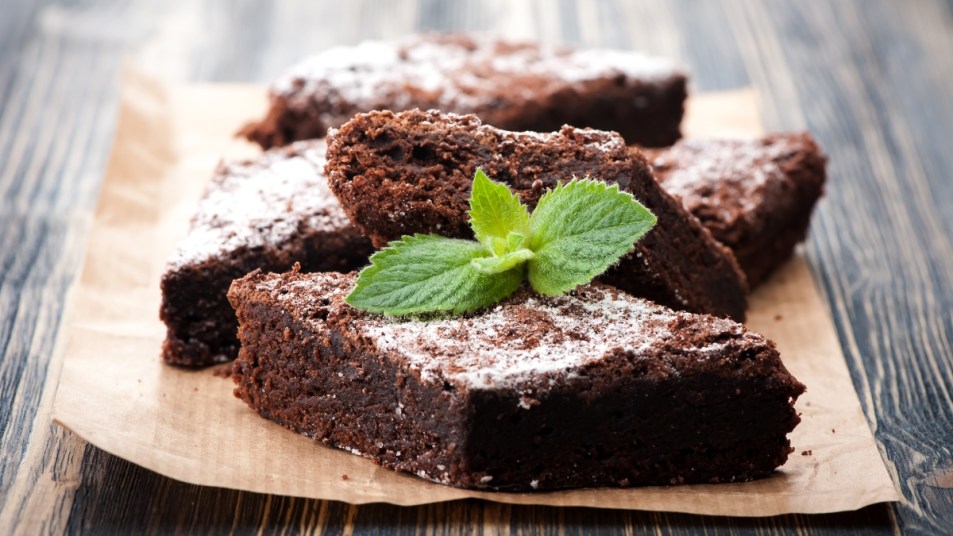Eat Brownies For Better Bloodwork — And Other Easy Ways to Lower Triglycerides
Keep heart disease at bay.

One of the best parts about summer vacation is allowing yourself to indulge in the foods you don’t eat on a regular basis. Hot dogs on the grill with a scoop of strawberry ice cream for dessert? Yes please. And it turns out, you can enjoy these foods without worrying about blood fats known as triglycerides. While high levels can put a strain on your ticker, keeping them in a healthy range may curb the risk of heart disease. And doing so is easier than you may think — keep reading for these simple health hacks that can help your heart without sacrificing summertime joy.
The Lowdown on Triglycerides
Triglycerides are fats found in your blood. They come from the foods you eat, and they’re stored in cells as energy to be released between meals when you need it most. But if you’re taking in too many dietary fats without burning them off, triglycerides can build up and cause health problems like high blood pressure and obesity, and even an increased risk of pancreatitis, heart disease, or stroke. An optimal level of triglycerides is below 150 mg/dL, so if your levels are higher than that, your doctor may recommend that you limit triglyceride-boosting foods like pasta, baked goods, sugary drinks, and butter. The good news, however, is that you don’t need to give up all fun in order to keep your blood fats in check. Here, how to enjoy summer treats without side effects!
Bite into brownies.
Happy news: Indulging in gooey, fudgy brownies can keep your triglycerides low. The trick is simply replacing the butter or oil in your favorite recipe with pureed black beans. (The swap won’t hamper the texture or taste!) According to an animal study done by the USDA, mice that ate a single serving of black beans a day lowered their triglycerides by 37 percent. The credit goes to bean proteins called alpha-amylase inhibitors, which curb triglyceride production. In the study, the mice that ate beans also experienced a boost in healthy gut bacteria and a reduction of harmful inflammation. To get the benefits, aim to eat about ½ cup of black beans a day.
Take a stand.
You already know getting exercise is good for you, but it’s hard to schedule in a sweat session when your list of to-dos seems never-ending. Luckily, you don’t have to reconfigure your day to get enough exercise to benefit your blood fats. Indeed, standing up and moving around for just 60 seconds every half hour breaks up bouts of sitting, lowering triglyceride levels by 15 percent, a study in Lipids in Health and Disease reveals. That’s just two minutes an hour — less time than it takes to brew a fresh pot of afternoon coffee.
Binge blockbusters.
Summer and movies go together like peanut butter and jelly. And soaring temperatures and bingeworthy flicks make this time of year perfect for basking in the AC. Thankfully, doing so can help lower blood fats too! A study published in Frontiers in Medicine found that women who enjoyed 30 minutes of downtime each day may trim 30 points off their triglyceride levels in six weeks. Turns out reducing stress hormone levels can have a healing effect on your liver, limiting its triglyceride production. So grab some popcorn — but dress it with olive oil instead of butter.
Spice things up.
What do banana bread, iced coffee, and oatmeal have in common? They’re all better with a dash of cinnamon. And as it turns out, your blood fat levels may be better with a dash of cinnamon, too. Simply adding ½ teaspoon of the spice to your daily diet reduces your triglycerides by up to 30 percent in 40 days, a study in Diabetes Care reveals. Cinnamon breaks down triglycerides in the blood so they don’t build up. Want a tasty (and healthy) way to start your day? Try this homemade cinnamon water that may also help you lose weight.
Boost vitamin B.
Getting your daily dose of vitamins is not only a good habit — it’s also important for keeping your triglycerides in check, and vitamin B might play a big role. Brigham and Women’s Hospital researchers reporting in the journal JAMA found that taking 1,500 to 2,000 mg. of vitamin B-3, also known as niacin, daily curbs triglycerides by as much as 25 percent. It works by reining in the liver’s triglyceride output.
This content is not a substitute for professional medical advice or diagnosis. Always consult your physician before pursuing any treatment plan.
A version of this article originally appeared in our print magazine, Woman’s World.












